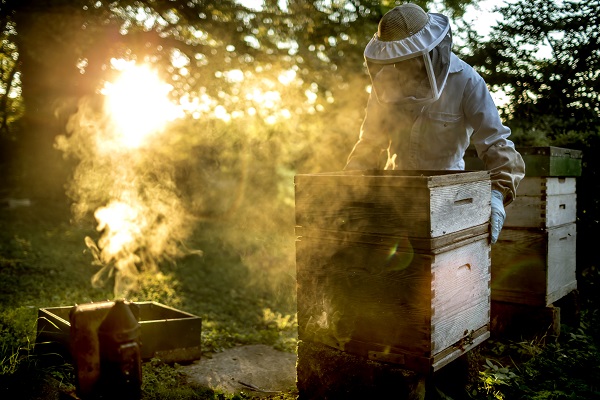Utah Environmental Group Wants to Block Honey Bees from Forests
August 26, 2020
Never thought I would see an environmental group fighting against honey bees.
This year just continues to get weirder and weirder. When you usually hear about environmental groups and honey bees, the group is trying to protect the bees, not shun them. That, however, is exactly what is going on in Utah, as an environmental group is hoping to get honey bees banned from its national forests.
Honey bees, although not native to our country, have been here since the 1600s, coming over with Europeans who settled here. It took time for the honey bee to work its way across the entire country, but by the mid 1800s, honey bees had arrived in Utah (this was right around the time Brigham Young arrived in Salt Lake Valley.
Adee Honey Farms, in 2017, stated that it wanted to start putting as many apiaries as possible throughout the national forests of Utah. Brian Burkett, who works for Adee, stated, “We are proposing to put as many apiary sites as possible across different Utah national forests at our researched sites. We are desperately trying to get out of pesticide areas [due] to the loss of bees.”
Now, though, a group of environmentalists are hoping to block that from happening. The group submitted a 12-page petition to the Department of Agriculture in the hopes of blocking managed bees from the forests. According to the petition, since these bees are not native to the area, they could hurt other pollinators that are native to these forests.
Rich Hatfield, senior conservation biologist for Xerces Society for Invertebrate Conservation stated, “This petition is asking for simple, commonsense protections for essential pollinators. Allowing nonnative animals to forage broadly across the landscape without considering potential impacts to our native plants and animals is not sound land management, given the existing evidence that shows the effects that honeybees can have on our native bees. Solutions that help beekeepers must not further endanger the already struggling native bees on which our national forests depend.”
In addition to Xerces, Grand Canyon Trust, the Center or Biological Diversity and the Utah Native Plant Society have signed the petition.
Local beekeeper Darren Cox believes these concerns are very much overblown and believes the apiaries would help the national forests thrive, not hurt them. Cox stated, “They’re making more flowers. They’re making healthier trees. It could wind up the honeybees are a benefit for public lands. The bees here are creating life. They’re not damaging the flowers. By pollinating the flowers in the Forest Service [lands], it ensures a lot of flowers, blooming plants and not just grasses and sagebrush, so it makes it better.”
This is a fight that is not likely to end anytime soon, so will keep our eyes on it and see how this plays out as the petition makes its way through the government channels.
Source: SLTRIB.com


.jpg)




